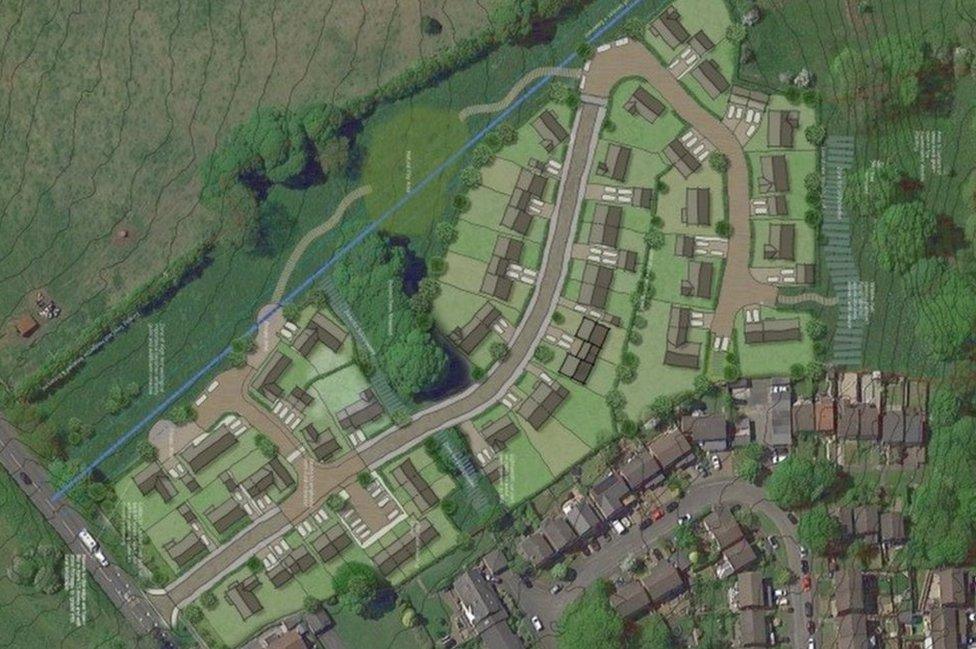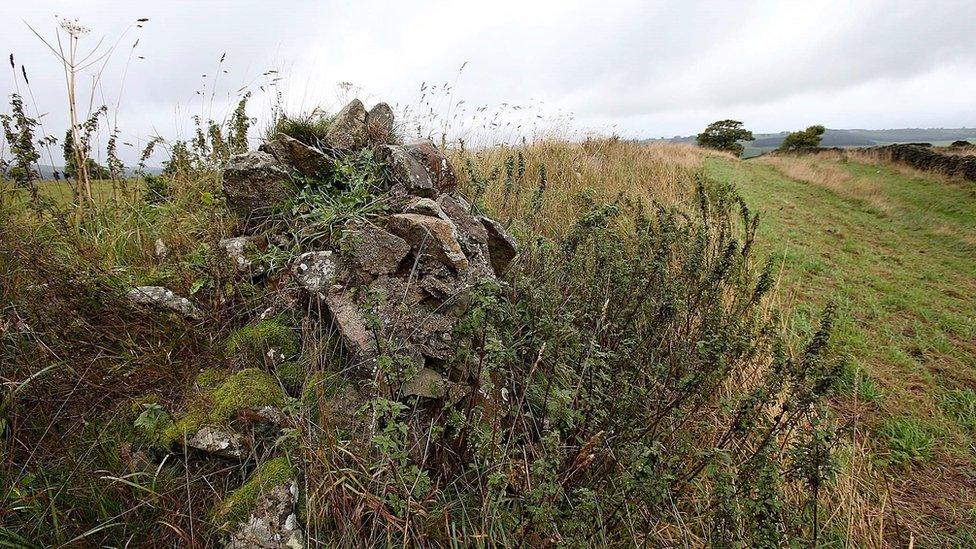Durham councillors reject Lanchester Longovicium homes
- Published

Developers wanted to build 46 homes near Longovicium in Lanchester
Plans to build 46 homes near the remains of Durham's "most important" Roman fort have been roundly rejected.
Developer Apinder Ghura wanted to build the estate near Longovicium in Lanchester, County Durham.
More than 80 people objected along with Historic England, Lanchester Parish Council and Friends of Longovicium as well as countryside campaigners.
Durham County councillors refused the plans saying they would cause "irreversible and permanent harm".
The homes were proposed for land west of Briardene, Cadger Bank, the Local Democracy Reporting Service said.
Longovicium was a major fort and settlement on Dere Street, which connected York to Hadrian's Wall.
The ancient monument area covers 74 hectares with archaeological Roman remains extending beyond, the council said.

Longovicium was a major fort and settlement on Dere Street
Senior planning officer Steve France said the council's archaeology team were against the housing plans "as significantly as they possibly can be", adding: "They consider this the most important Roman fort in the county, and possibly in the region as well."
He said there were 85 objections from villagers as well as various campaign group, adding: "It's unusual for an application to have so many refusal reasons."
Ward councillor Doug Oliver said: "The harm to the significance of the monument would almost certainly be irreversible and permanent."
Mark Ketley, agent for the developer had said there would be "limited environmental harm" but that would outweighed by the benefits of new homes.
The planning committee voted unanimously to refuse the plan.

Follow BBC North East & Cumbria on Twitter, external, Facebook, external and Instagram, external. Send your story ideas to northeastandcumbria@bbc.co.uk, external.